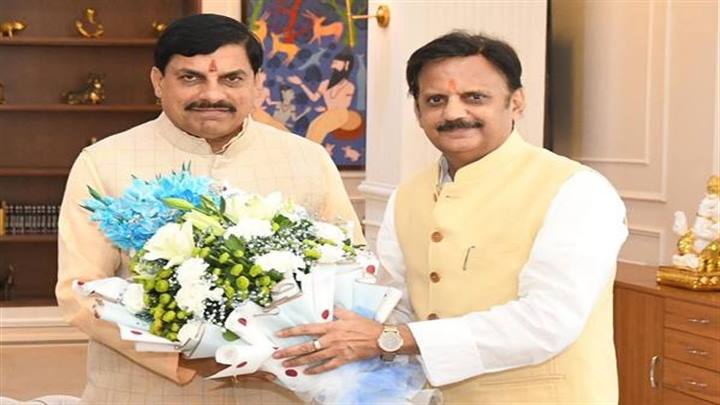Why Did Trump Support Pakistan? Inside the US-Pak Backdoor Setup and the Rise of Digital Slavery
The decisions made by former US President Donald Trump in favor of Pakistan are once again under scrutiny.

Prativad Special Report
The decisions made by former US President Donald Trump in favor of Pakistan are once again under scrutiny. At a time when diplomatic tensions between India and Pakistan were at their peak, Trump’s soft stance towards Pakistan and repeated offers for “mediation” raised many eyebrows. Why did the president of a global superpower attempt to equate Pakistan with India, despite India's clear opposition?
A deeper investigation into this sequence of events reveals layers of global geopolitics driven by capital, control, and strategic compulsion.
India’s Firm Stand and Trump's Mediation Offer
When India launched decisive actions against cross-border terrorism—such as the Uri Surgical Strike and the Balakot Airstrike—Pakistan found itself diplomatically isolated. At this juncture, Trump’s unexpected offer to mediate between India and Pakistan seemed not just misplaced but suspicious.
India flatly rejected the offer, reiterating that all issues with Pakistan are strictly bilateral and not open to third-party involvement. Nonetheless, Trump persisted in claiming he was facilitating dialogue between the two. India’s External Affairs Ministry later dismissed these claims as completely false and baseless.
The US-Pakistan 'Backdoor Diplomacy'
As India mounted pressure, Pakistan reportedly established backchannel communications with the United States. The objective was clear—prevent military escalation and regain some international legitimacy. Pakistan's then-prime minister even publicly thanked Trump, claiming his "mediation" had helped reduce tensions.
But this so-called mediation appears to be part of a broader US strategy, where Pakistan was seen as a strategic pawn in global balance politics.
A Businessman's Presidency and the Capital-Driven View of Diplomacy
Trump has always been seen more as a businessman than a traditional politician. Most of his decisions were based on negotiation, profits, and deal-making. Hence, Pakistan was treated as a strategic customer—a country that could provide access to military bases, cooperation in Afghanistan, and profitable arms deals.
This reflects the larger mindset of American capitalism, where even diplomatic relations are transactional and based on financial return.
Digital Colonialism: The US's New Global Strategy
In today's interconnected world, American dominance is not only military or financial—it is informational and psychological, thanks to platforms like YouTube, Twitter, Facebook, Instagram, and Google.
These platforms determine what information reaches the public and what gets censored, largely under American corporate control. Hence, most governments worldwide are reluctant to challenge these platforms openly.
Cryptocurrency: Is It the Beginning of Economic Slavery?
The video further explores the idea that the world is heading toward a new, unregulated financial order—cryptocurrency. Bitcoin is the most well-known example. It is not backed by any nation or central authority, unlike fiat currencies such as the dollar or rupee.
Based on blockchain, it offers decentralization—but that also means lack of accountability and regulatory oversight, which could lead to economic chaos or manipulation if abused by powerful nations or corporations.
The US-Pakistan Crypto Partnership: Is Pakistan a Pilot Zone for Digital Dollar Expansion?
In recent years, Pakistan has emerged as a potential testbed for America's digital finance expansion, especially in the context of the Digital Dollar or CBDC (Central Bank Digital Currency). Analysts believe the US might use countries like Pakistan to experiment with and promote digital monetary systems.
Why Is Pakistan Strategically Useful?
-
Dollar Dependence: Pakistan is heavily reliant on the US dollar. Its frequent bailouts from the IMF and World Bank keep it under American financial influence. This dependence makes it a suitable "Asian lab" for launching and testing the Digital Dollar.
-
Fintech and Data Access: The US seeks to control transaction data and financial behavior of populations using its digital currency. Pakistan’s weak cyber privacy and digital regulations make it a favorable ground for such experiments in financial surveillance.
-
Crypto Regulation Pressure: Though Pakistan declared cryptocurrencies illegal, under IMF guidance and potential US pressure, it is now exploring a regulated digital economy model, which would involve American fintech firms and governance frameworks.
The Bigger US Strategy: The Next Phase of Digital Colonialism?
Just as the US used social media platforms to dominate global discourse, it now appears to be setting the stage for digital financial dominance through the Digital Dollar and crypto-based systems. Nations like Pakistan, Afghanistan, and Nigeria could serve as pilot zones for this model.
What Does It Mean for India?
India is developing its Digital Rupee (e₹) with a focus on sovereignty and security. However, if neighboring Pakistan integrates into the US-led digital dollar ecosystem, it raises concerns about cross-border digital surveillance, data leaks, and economic influence. It also casts doubt on how the US would handle potential terrorist financing through such digital frameworks in Pakistan.
Donald Trump's favorable treatment of Pakistan was not merely diplomatic—it was rooted in strategic economic thinking and digital dominance planning. Today, America's global agenda appears to blend capital, technology, and geopolitical leverage in a highly calculated manner.
While India remains firm in its rejection of third-party interference, the dual nature of US foreign policy reveals that in international politics, interests—not sentiments—shape relationships.






















